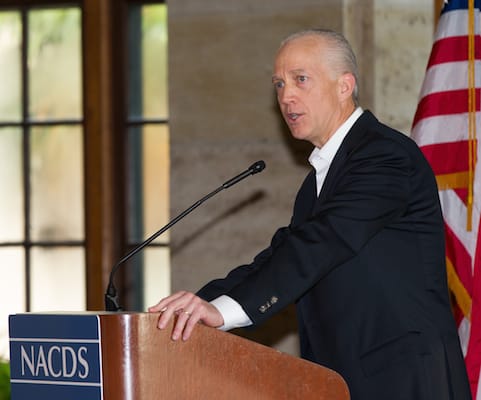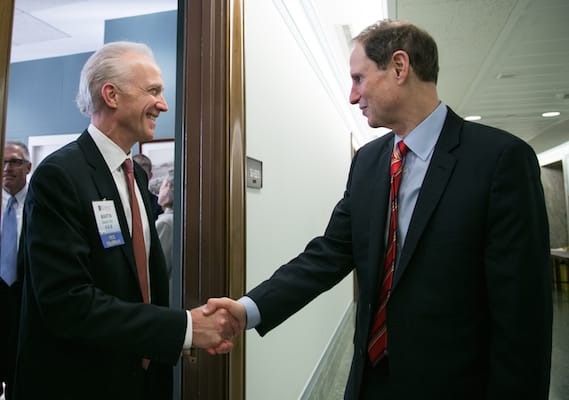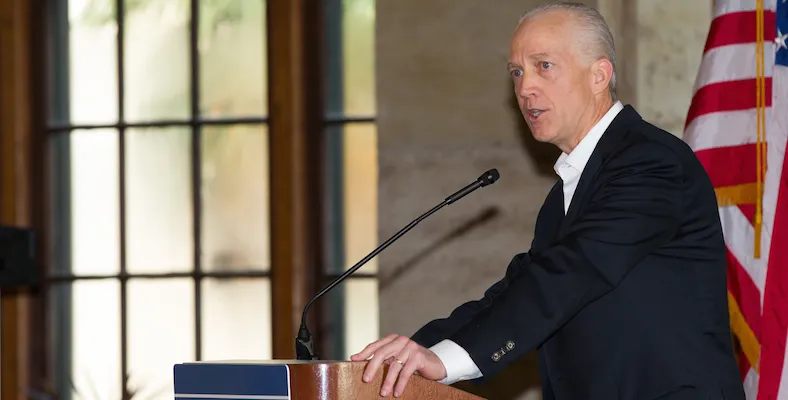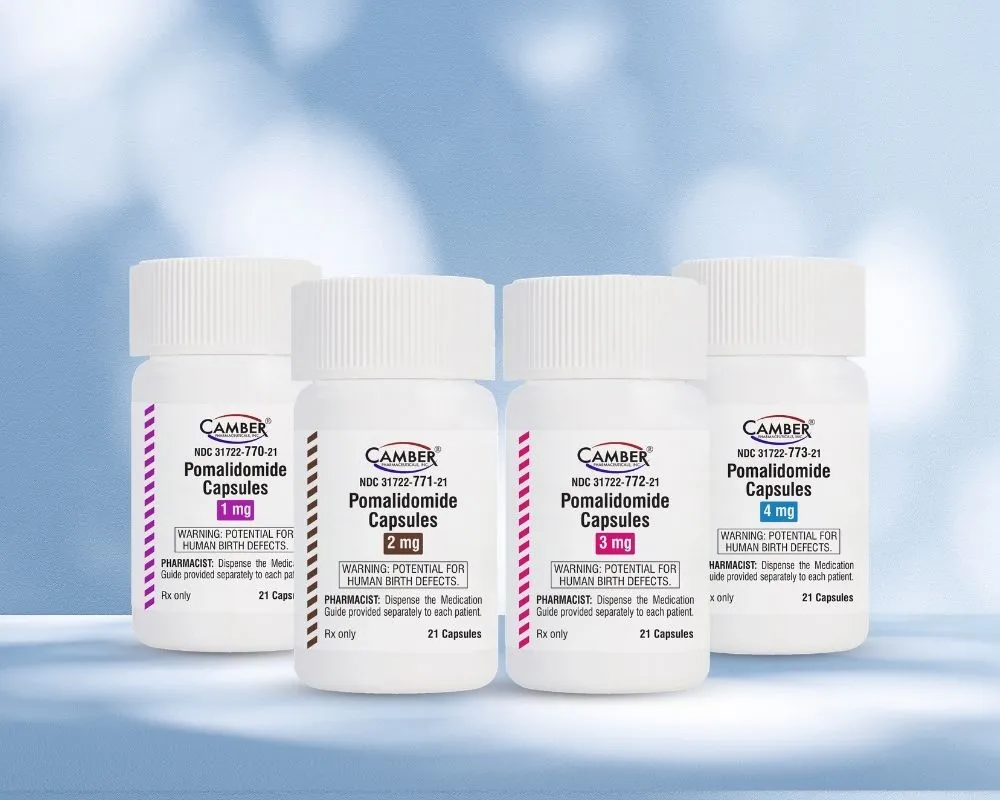
H-E-B’s Martin Otto, the incoming chairman of NACDS
SAN ANTONIO — Martin Otto, the incoming chairman of the National Association for Chain Drug Stores, symbolizes the changes that have occurred both in the organization and in the chain pharmacy industry.
As both chief merchant and chief financial officer for San Antonio-based H-E-B, Otto is the fourth supermarket executive to fill the chairman’s role at NACDS. In taking on this new position, Otto envisions clear priorities for NACDS. One is to continue to create an effective marketplace for retailers and suppliers. Another is to ensure that NACDS continues to be an effective advocate for community pharmacy with lawmakers and policy makers.
In an interview with Jeffrey Woldt, vice president and editorial director of Chain Drug Review, Otto talks about his new responsibilities at NACDS and gives his perspective on leading issues facing the chain drug industry. Here is an excerpt of their discussion.
CDR: You are about to become chairman of NACDS. Talk a little bit about what your priorities are as you take on that assignment.
OTTO: I look at NACDS as having three roles. The first is to create a marketplace for retailers and suppliers. The second is to advocate on behalf of retail pharmacy in front of both elected officials and regulators, at both the federal and state level so that we can further our efforts in patient care provided by our pharmacists. The third is to advance health care in the U.S., particularly as it relates to pharmacy through the NACDS Foundation’s research work.
Creating a marketplace is covered by the different events sponsored by the association — the NACDS Annual Meeting, the Total Store Expo and the Regional Chain Conference. Jim Whitman [senior vice president of member programs and services], who runs that part of the business for NACDS, in my view, puts together the best trade shows in the industry.
My role is to support [president and chief executive officer] Steve Anderson and Jim Whitman and the rest of the NACDS team, and continue to make sure we stay relevant to both retailers and suppliers, and that we hear the feedback about what works and, more importantly, what is not working so we can make changes when needed.
Turning to the second area, advocacy for pharmacy and drug stores, which is led by Carol Kelly, there are several priorities that we as an industry have. One is to gain provider status under Medicare for our pharmacists so that they can provide a broader array of services to our customers and patients.
The second priority is to ensure access to retail pharmacies for the beneficiaries of Tricare, which is the prescription program for military personnel. Today that is not as available to military beneficiaries as we would like it to be. We are looking at what is good for patients, for our country and, of course, for our retail pharmacies.
A third priority is to establish “any willing provider” status for our pharmacies, so that any pharmacy that wants to participate in a Medicare Part D pharmacy plan can do so in medically underserved areas, provided it agrees to meet the prices and conditions established by the plan.
Another priority is reimbursement under Medicaid, which has undergone recent changes. The intent of the association is to stay on top of that issue and to make sure that the implementation works out as it is supposed to and is fair for our retail pharmacy members.
CDR: At what point do you see the association solidifying its position on the new AMP rule?
OTTO: It is something that we have been discussing since CMS [the Centers for Medicaid and Medicare Services] issued the final rule in January. We will discuss it further at the upcoming board meeting in Palm Beach.

Otto with Sen. Ron Wyden (D., Ore.) at NACDS RxImpact Day.
CDR: What kind of reception did the NACDS delegation receive when you went up to Capitol Hill for RxImpact Day?
OTTO: This year was the third time I’ve been to the event. It’s educational, because it’s not something that I’ve done before in my career, to spend time in Washington with our elected officials. It’s been a great learning experience. Beyond that, it has been gratifying over the last two years to see NACDS’ growing presence each year and how much more knowledgeable the elected officials are about the details of the issues we talk to them about. That speaks to the quality and hard work of the NACDS team.
It’s exciting in that regard because it gives me hope that we can make a difference collectively for health care and for the role that pharmacy can play. Pharmacy is the face of neighborhood health care. And I think pharmacy can play a much bigger role than we do today. It is exciting to me to see the reception that we get on Capitol Hill, and the level of knowledge that exists today versus just two years ago, and the genuine interest that so many of the legislators show about the role of pharmacists.
CDR: As you look at the state of pharmacy now and its evolution, where do you see the industry going and what part should NACDS play?
OTTO: When you look at health care, it’s really about three elements. One is quality of care. Another is access to care, which includes choice of which provider a patient chooses to visit. And the third is cost. As we look at how to balance those three against one another, pharmacy is in a great place to make a difference for our nation. The reason I say that is because so many people really don’t have easy access to a primary care physician. Our pharmacists are well qualified to step in and treat a number of our patients’ medical needs. I am optimistic that we can make progress on this topic.
A second aspect is the day-to-day advice that pharmacists give to patients as they are looking at over-the-counter medications or how to use the medications they have been prescribed. That includes compliance with medication regimens. It has been well documented that better adherence to medication programs will deliver better health. And pharmacists make a big difference in that area.
CDR: How should H-E-B or any other member of NACDS go about trying to maximize the benefits that working with the association can provide?
OTTO: Number one, by participating. Attend the meetings and collaborate with suppliers. I cannot think of a more efficient way to meet with and build relationships with suppliers than the NACDS Annual Meeting, Total Store Expo and Regional Chain Conference.
Beyond that, by knowing what the issues are and the lay of the land for pharmacy in terms of regulations and legislation, and by giving feedback to the NACDS staff about what the retailers need in their operating areas and make sure that is being worked on.
Also by participating in NACDS RxImpact Day, as many retailer members do. It makes a big, big difference, based on what I have seen over the last three years. I will also say, for anything that a retailer sees is not working, be vocal and share what that is.
CDR: Would you hazard a guess as to where community pharmacy is going to wind up five or 10 years down the road? Will the industry be playing the bigger role in health care that you referenced before?
OTTO: I am hopeful about that. It only makes sense for pharmacists to be able to provide services to patients at the top of their qualifications. I think we will work our way to a point where our pharmacists are able to offer patient care at the level that they are educated to do. I’m optimistic about that — I think we will make progress.
Our health care system spend is $3 trillion annually. That is very expensive when you compare it to other nations. How we balance that against having good quality care and providing patients with the choices they want and the access they need is going to be a big challenge. My hope is that pharmacy will be able to play a bigger role. In terms of reimbursement, it is going to be very important that we make sure that our pharmacies are compensated at a fair level so that we can continue to provide the services that we do.
CDR: Do you have any thoughts about what more NACDS might do in terms of the front-store business?
OTTO: That goes back to the first role I mentioned, which is to create a marketplace for retailers and suppliers. Again, I think Jim and his team do a fantastic job putting the meetings together and providing a very efficient way for retailers and suppliers to meet and do business. What we have to do there is to continue to get feedback and hear what’s working and, more importantly, what can be improved.
Over the longer term — because of some of the challenges of health care economics and with reimbursement rates — the front end is going to play a critical role for every retailer. Be it a drug store, a food/drug combo or a mass merchant, that retailer needs to earn the kind of profit that is necessary to stay in business. Toward that end, the front end is critical. The kind of products that need to be developed and the way they need to be marketed and merchandised is going to be economically more important over the next decade than it has been for the past decade.
*Editor’s Note: To read the full interview with Martin Otto, please see the April 18, 2016, print issue of Chain Drug Review.







